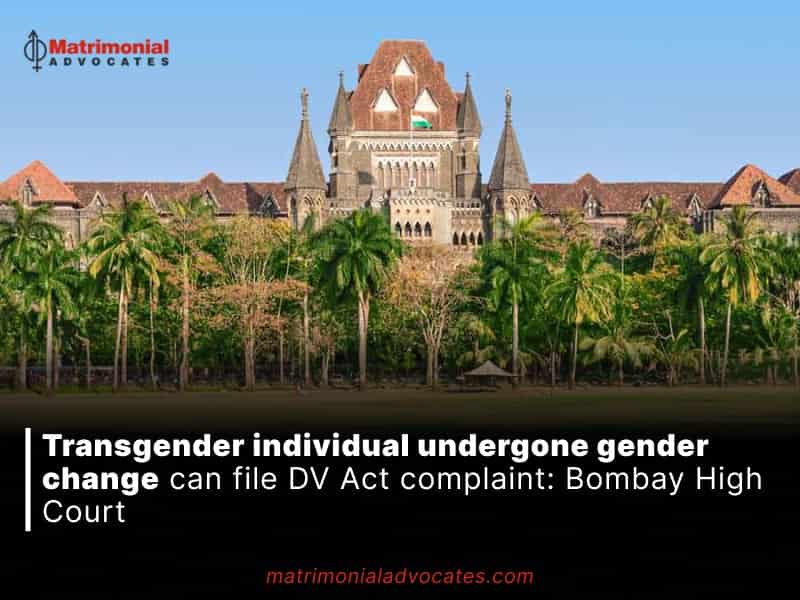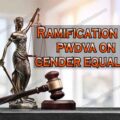
According to a recent ruling by the Bombay High Court, a transgender woman who has undergone gender reassignment surgery can be considered an “aggrieved person” under the Domestic Violence Act and has the right to seek interim maintenance in a domestic violence case. Justice Amit Borkar dismissed a petition filed by a man challenging the maintenance awarded to his wife, a trans woman, stating that a person who has undergone gender reassignment surgery to identify as a female is considered an aggrieved person under Section 2(a) of the Domestic Violence Act.
The court emphasized that the main objective of the Domestic Violence Act is to provide protection to women who are victims of violence within the family. Therefore, the term “aggrieved person” under section 2(a) of the Act should be interpreted broadly to achieve this objective. The court stated that the Act’s purpose is to provide more effective protection of women’s rights, and the definition of aggrieved persons should be interpreted with the widest possible scope to achieve this objective.
According to the petitioner’s argument, the respondent, a transgender woman who had undergone sex reassignment surgery, does not come under the ambit of the term ‘aggrieved person’ as it is restricted only to women in a domestic relationship. The petitioner also argued that since the respondent did not have a certificate under Section 7 of the Transgender Persons (Protection of Rights) Act, 2019, she cannot be considered a woman under the Domestic Violence Act.
The respondent argued that the Supreme Court has acknowledged the right of transgender individuals who have undergone gender reassignment surgery to have their gender identity recognized based on their reassigned sex. The main issue for the court to decide was whether a transgender woman who has undergone sex reassignment surgery could be regarded as an “aggrieved person” under Section 2(a) of the Domestic Violence Act.
According to the court, the Transgender Persons (Protection of Rights) Act defines transgender persons, regardless of whether they have undergone sex reassignment surgery, in section 2(k). Section 7 of the same Act allows a transgender person who has undergone surgery to apply to a magistrate to change their gender.
The court emphasized that the term “woman” in section 2(a) of the DV Act limits its scope. However, the court referred to the National Legal Services Authority v. Union of India case and stated that transgender persons who have undergone sex reassignment surgery have the right to choose their gender.
The court explained that the purpose of the DV Act is to offer effective protection to women who have suffered domestic violence. Therefore, the definition of aggrieved persons should be interpreted as broadly as possible.
According to the court, the term “woman” mentioned in section 2(a) is not restricted to the traditional understanding of the binary genders of male and female, and it now encompasses transgender persons who have undergone gender reassignment surgery and aligned their physical gender with their gender identity.
Source: https://www.livelaw.in/top-stories/bombay-high-court-transgender-woman-sex-reassignment-surgery-domestic-violence-act-aggrieved-person-225279





